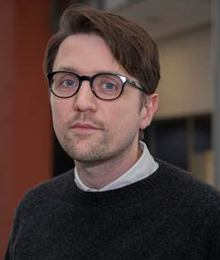
Michael Brockhurst
University of Manchester
United Kingdom
EMBO | EMBL Symposium
This conference will take place at EMBL Heidelberg, with the option to attend virtually.
Host-microbe interactions can be positive or negative for both a host organism and its symbiotic microbes. Interacting with microbes can allow eukaryotes to acquire crucial functions, like nutrient production, but interactions can also be pathogenic in nature. This cross-disciplinary meeting will bring together scientists using cellular, molecular, ecological, physiological, and theory-based approaches to explore the evolution of intimate species-species interactions. Our aim is to understand the cellular systems and pathways that drive transitions in symbiotic states, for example, as partnerships move from pathogenesis to beneficial and back again.
Please see EMBL’s COVID-19 safety recommendations if attending the on-site event.

University of Manchester
United Kingdom
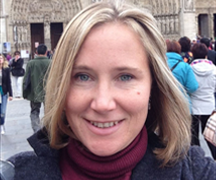
University of Edinburgh
United Kingdom
(Virtual Speaker)

Max Planck Institute for Marine Microbiology
Germany
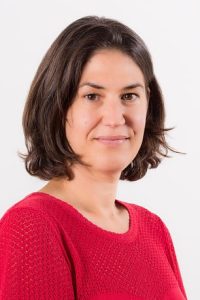
Ludwig Maximilian University of Munich
Germany

University of California, Riverside
USA

Max Planck Institute for Chemical Ecology
Germany
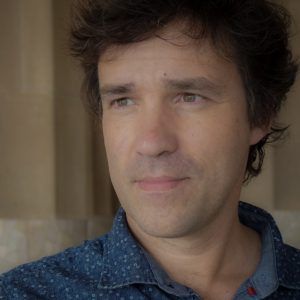
University of British Columbia
Canada
(Virtual Speaker)
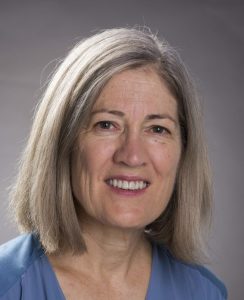
University of Texas at Austin
USA
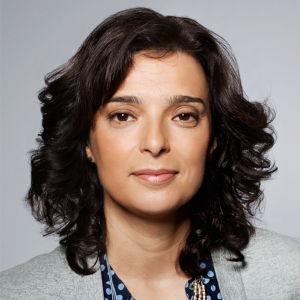
Instituto de Medicina Molecular, Biomedical Institute
Portugal
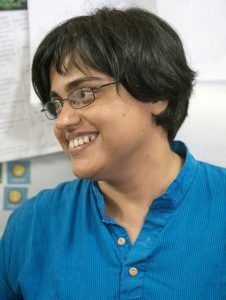
University of California, San Francisco
USA
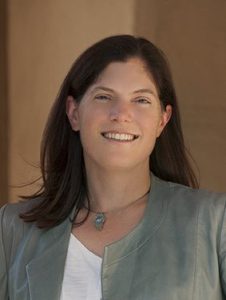
California Institute of Technology
USA
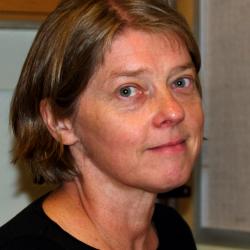
Cornell University
USA
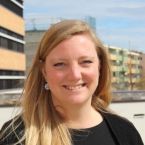
University of Vienna
Austria
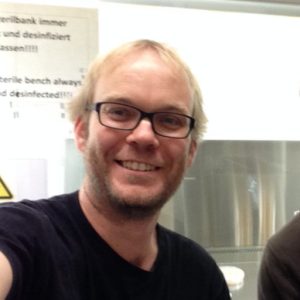
University of Alberta
Canada

University of Tsukuba
Japan
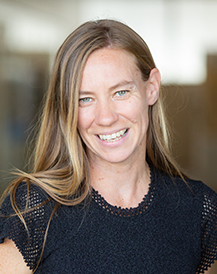
Vrije Universiteit Amsterdam
The Netherlands
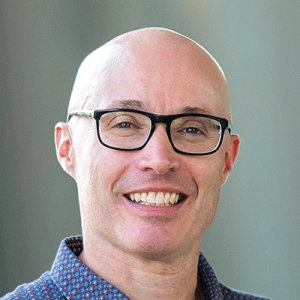
Arizona State University
USA

University of Oxford
United Kingdom
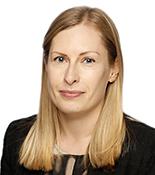
EMBL Heidelberg
Germany
Got something to say? Tweet it! #EESSymbiosis
For registered participants, recorded talks will be accessible on demand for 2 weeks after the end of the event, unless indicated otherwise.
| Time (Berlin/Europe) | Speaker |
|---|---|
| 11:30-13:00 | Registration & Light Refreshments |
| 13:00-13:15 | Opening remarks |
| 13:15-14:35 | Session 1: Partners in conflict: immunity and pathogenesis in symbiosis Chair: John McCutcheon – Arizona State University, USA |
| 13:15-13:40 | Host-plasmodium interaction: a tale of symbiosis and pathogenesis Maria Mota – Instituto de Medicina Molecular, Biomedical Institute, Portugal |
| 13:40-13:55 | Short talk: The interaction between T. rotula and its phycosphere companion A. macleodii – The story about the three little glass-coated diatoms and the bad parasitic bacterium Uria Alcolombri – ETH Zürich, Switzerland Not available on demand |
| 13:55-14:10 | Short talk: Bacterial symbionts, giant viruses, and protists: exploring the mutualism-parasitism continuum Matthias Horn – University of Vienna, Austria |
| 14:10-14:35 | Cross-kingdom RNA trafficking between plants and fungal pathogens Hailing Jin – University of California, Riverside, USA Not available on demand |
| 14:35-15:20 | Coffee break & Meet the speakers of Day 1 Maria Mota, Hailing Jin, and Shaeri Mukherjee |
| 15:20-17:05 | Session 1: Partners in conflict: immunity and pathogenesis in symbiosis (continued) Chair: John McCutcheon – Arizona State University, USA |
| 15:20-15:45 | Virtual talk: RNA in communication: new insights into host-helminth interactions in the gut Amy Buck – University of Edinburgh, United Kingdom Not available on demand |
| 15:45-16:00 | Short talk: Transcription activator-like effector protects bacterial endosymbionts from entrapment within fungal hyphae Ingrid Richter – Leibniz Institute for Natural Product Research and Infection Biology, Jena, Germany |
| 16:00-16:15 | Short talk: FISHing for more: spatial mapping of the tumour microbiome Shraddha Shitut – EMBL Heidelberg, Germany |
| 16:15-16:40 | Pathogens as cell biology tools Shaeri Mukherjee – University of California, San Francisco, USA |
| 16:40-17:00 | Break |
| 17:00-19:00 | EMBL pub quiz |
| 19:00-20:30 | Dinner |
| 20:30-21:30 | After dinner drinks |
| Time (Berlin/Europe) | Speaker |
|---|---|
| 08:30-09:15 | Arrival & Coffee |
| 09:15-10:35 | Session 2: Partners in less conflict: how are symbionts harnessed for benefit Chair: Toby Kiers – Vrije Universiteit Amsterdam, the Netherlands |
| 09:15-09:40 | Virtual talk: Cui bono? When mutualism is not what it seems Patrick Keeling – University of British Columbia, Canada Not available on demand |
| 09:40-09:55 | Short talk: Population and comparative genomics uncover the processes impacting strain-level variation in marine endosymbionts Roxanne Beinart – University of Rhode Island, USA |
| 09:55-10:10 | Short talk: Immune-like glycan processing facilitates host control of a facultative endosymbiosis Ben Jenkins – University of Cambridge / University of Oxford, United Kingdom |
| 10:10-10:35 | The ecology, evolution and metabolic mechanisms of a microbial symbiosis Michael Brockhurst – University of Manchester, United Kingdom |
| 10:35-11:20 | Coffee break & Meet the speakers of Day 2 Annika Guse, Michael Brockhurst, and Martin Kaltenpoth |
| 11:20-12:40 | Session 2: Partners in less conflict: how are symbionts harnessed for benefit (continued) Chair: Toby Kiers – Vrije Universiteit Amsterdam, the Netherlands |
| 11:20-11:45 | Evolution, ecology, and molecular regulation of tyrosine-supplementing symbioses in beetles Martin Kaltenpoth – Max Planck Institute for Chemical Ecology, Germany Not available on demand |
| 11:45-12:00 | Short talk: A novel symbiosome in an anaerobic single-celled eukaryote Jon Jerlström Hultqvist – Uppsala University, Sweden |
| 12:00-12:15 | Short talk: Ticks: not only vectors of pathogenic bacteria but also beneficiaries of bacterial symbiosis Jan Perner – Biology Centre CAS, Czech Republic |
| 12:15-12:40 | Adaptation to the environment by symbiosis – a model systems’ approach Annika Guse – Ludwig Maximilian University of Munich, Germany |
| 12:40-14:10 | Lunch |
| 14:10-15:05 | Session 2: Partners in less conflict: how are symbionts harnessed for benefit (continued) Chair: Annika Guse – Ludwig Maximilian University of Munich, Germany |
| 14:10-14:25 | Short talk: Quid pro quo: Leaf beetle propagates a phytopathgen in exchange for pupal protection Hassan Salem – Max Planck Institute for Biology, Germany |
| 14:25-14:40 | Short talk: Nutritional rewards can mediate higher-level homeostasis in a tightly integrated leafcutter ant-fungus cultivar symbiosis Jonathan Shik – University of Copenhagen, Denmark |
| 14:40-15:05 | Virtual talk: Partners in crime – controlling algal blooms by mutualism and pathogenicity of viruses and bacteria Assaf Vardi – Weizmann Institute of Science, Israel |
| 15:05-15:45 | Flash talks 1 Ellen Cameron (43), Phoebe Cunningham (47), Erbil Gungor (55), Camille Puginier (67), Johana Rotterova (69), Dayana Salas (71), Giovanni Scarinci (73), Daan Speth (79), Taoping Wu (83), Daniel Yee (85), and Linus Matz Zeller (87) |
| 15:45-17:30 | Poster session 1 (odd) with beer and snacks Poster numbers |
| 17:30 | Free evening |
| 18:15-19:45 | Optional: Heidelberg Old Town tour with an English speaking tour guide |
| Time (Berlin/Europe) | Speaker |
|---|---|
| 08:30-09:15 | Arrival & Coffee |
| 09:15-10:35 | Session 3: Living in, on, and around others: when is a symbiosis a symbiosis? Chair: Martin Kaltenpoth – Max Planck Institute for Chemical Ecology, Germany |
| 09:15-09:40 | Searching for keys to symbiosis between Buchnera and its aphid host Nancy Moran – University of Texas at Austin, USA |
| 09:40-09:55 | Short talk: Sweet and fat symbionts: tracking the carbon metabolism of microalgae within a host Andrea Catacora Grundy – Grenoble Alpes University, France |
| 09:55-10:10 | Short talk: Metabolic compatibility and the rarity of prokaryote endosymbioses Eric Libby – Umeå University, Sweden |
| 10:10-10:35 | 400 million years of symbiosis between marine lucinid clams and their intracellular sulfur-oxidizing symbionts Jillian Petersen – University of Vienna, Austria |
| 10:35-11:20 | Coffee break & Meet the speakers of Day 3 Nancy Moran, Jillian Petersen, Nicole Dubilier, and Toby Spribille |
| 11:20-12:40 | Session 3: Living in, on, and around others: when is a symbiosis a symbiosis? (continued) Chair: Martin Kaltenpoth – Max Planck Institute for Chemical Ecology, Germany |
| 11:20-11:45 | The ins and outs of beneficial associations between marine invertebrates and their chemosynthetic symbionts Nicole Dubilier – Max Planck Institute for Marine Microbiology, Germany |
| 11:45-12:00 | Short talk: Diplonemid protists and a panoply of their bacterial endosymbionts Julius Lukes – Biology Centre CAS, Czech Republic |
| 12:00-12:15 | Short talk: Evolution of a host-derived endosymbiont division machinery in the trypanosomatid Angomonas deanei Anay Kumar Maurya – Heinrich Heine University Düsseldorf, Germany |
| 12:15-12:40 | Do we really know what lichen symbionts get from each other? Toby Spribille – University of Alberta, Canada |
| 12:40-14:10 | Lunch |
| 14:10-15:05 | Session 3: Living in, on, and around others: when is a symbiosis a symbiosis? (continued) Chair: Jillian Petersen – University of Vienna, Austria |
| 14:10-14:35 | The role of fungal innate immunity in symbioses between fungi and bacteria Teresa Pawlowska – Cornell University, USA |
| 14:35-14:50 | Short talk: A dynamic epibiont community associated with the bone eating worm Osedax Balig Panossian – Queen Mary University of London, United Kingdom |
| 14:50-15:05 | Short talk: Integrins promote the specific uptake of dinoflagellate symbionts in coral-algal symbiosis Sebastian Rupp – Ludwig Maximilian University of Munich, Germany |
| 15:05-15:50 | Coffee break & Meet the speakers of Day 3 & 4 Teresa Pawlowska, Victoria Orphan, and Norio Takeshita |
| 15:50-17:00 | Session 3: Living in, on, and around others: when is a symbiosis a symbiosis? (continued) Chair: Jillian Petersen – University of Vienna, Austria |
| 15:50-16:15 | Deep-sea electric syntrophy powered by methane Victoria Orphan – California Institute of Technology, USA |
| 16:15-16:30 | Short talk: Fungi and algae: the intimacy and diversity of lichen partnerships Klara Scharnagl – University of California, Berkeley, USA |
| 16:30-16:45 | Short talk: A systematic inventory of lichen symbioses using metagenomics Gulnara Tagirdzhanova – The Sainsbury Laboratory, United Kingdom |
| 16:45-17:00 | Short talk: Translation at the end of the endosymbiotic timeline Jessica Warren – Arizona State University, USA |
| 17:00-17:30 | Flash talks 2 Erika Corretto (46), Liam Friar (50), Terezia Horvathova (56), Valentina Margarita (60), Om Patange (64), Line Roager (68), Max Emil Schön (74), Noah Spencer (78), and Shunta Yorimoto (86) |
| 17:30-19:00 | Poster session 2 (even) with beer and snacks Poster numbers |
| 19:00-20:30 | Conference dinner |
| 20:30-22:30 | Conference party |
| Time (Berlin/Europe) | Speaker |
|---|---|
| 08:30-09:15 | Arrival & Coffee |
| 09:15-10:10 | Session 4: Shared lessons across systems: commonalities in symbiosis Chair: Thomas Richards – University of Oxford, UK |
| 09:15-09:40 | Mutual bacterial-fungal relationship; fungal highways let bacteria travel in exchange for thiamine Norio Takeshita – University of Tsukuba, Japan |
| 09:40-09:55 | Short talk: Who’s in control? The evolution of invertebrate microbiomes is driven by the bacteria, not the hosts Vittorio Boscaro – University of British Columbia, Canada |
| 09:55-10:10 | Short talk: Placement of bacteria into the cytosol of mammalian cells allows real-time analysis of bacterial growth and host responses Chantal Ernst – ETH Zürich, Switzerland Not available on demand |
| 10:10-10:55 | Coffee break |
| 10:55-11:40 | Session 4: Shared lessons across systems: commonalities in symbiosis (continued) Chair: Thomas Richards – University of Oxford, UK |
| 10:55-11:10 | Short talk: Phagocytosis underpins the biotrophic lifestyle of intracellular parasites in the class Phytomyxea (Rhizaria) Andrea Garvetto – University of Innsbruck, Austria Not available on demand |
| 11:10-11:25 | Short talk: Expanding the host range for a fungal endosymbiont through implantation by FluidFM Gabriel Giger – ETH Zürich, Switzerland |
| 11:25-11:40 | Short talk: A 450 million year-old mechanism of interaction control in arbuscular mycorrhiza symbiosis Mélanie Rich – LRSV Toulouse, France Not available on demand |
| 11:40-12:00 | Closing remarks & Poster prize |
| 12:15 | Packed lunch and departure |
| 12:30 | Bus to ISG Hotel and hotels downtown Optional: Shuttle bus to Frankfurt Airport (Terminal 1) Tickets can be purchased during the conference |
On-site registration fees include admission, conference materials, COVID-19 safety measures, meals and coffee breaks. Participants are expected to book and pay their own accommodation and travel expenses.
Virtual registration fees include access to all of the talks (livestreamed and on demand) and facility to submit questions.
| On-site Academia | € 700 |
| On-site PhD Student | € 600 |
| On-site Industry | € 900 |
| Virtual Academia | € 200 |
| Virtual PhD Student | € 150 |
| Virtual Industry | € 250 |
NO visa support letters will be issued until payment of the registration fee is confirmed.
Accredited journalists may be eligible to register for complimentary press registration. Registrants may be required to provide accreditation or equivalent proof of press membership after registration. Please contact Lina Nikolajeva for more information. Please note that we do not offer complimentary registrations for editors of scientific journals.
Registration will be on a first come, first served basis. Your place can only be confirmed after payment of the registration fee. If you are added to our waiting list, please consider taking advantage of our offerings to participate virtually.
On-site participants: Types of payments accepted are international bank transfers and credit card payments.
Virtual participants: We are only able to accept card payments. In exceptional cases we can accept bank transfers. Please contact events@embl.de for details.
Only participants registering to attend the on-site event are eligible to submit an abstract. Abstracts will not be accepted from virtual participants.
After registration you can submit your abstract via a separate link that will be provided in the email confirmation. Alternatively, you can access the link on the confirmation page directly after registering. The same login credentials are used for both processes.
Please note:
Abstract body: The limit of 2000 characters refers to manually typed text and excludes spaces. If an error occurs try using a different web browser (preferably Google Chrome or Mozilla Firefox).
If you copy-paste the text into the form, hidden formatting might still be included which may cause the text to exceed the 2,000 character limit resulting in an error message. We recommend you clear all formatting before pasting in the text.
If you have special symbols in your text, make sure you are using Unicode characters, otherwise these will not be recognised.
Title: The title should not exceed 20 words. Only the first word of the title should start with a capital letter and the rest should be lowercase.
Authors and affiliations: Please fill in the author’s details as requested in the online form. The compulsory fields are: First Name, Last Name, Organisation Name (Affiliation or Company), Country and Email.
Kindly mark only one author in the role of First Author and please don’t forget to indicate who will be the Presenter.
Please enter your co-authors correctly via the system by adding accounts together with their organisation/institute. Do not copy-paste them into the body of the abstract text, as they will not be indexed in the abstract book.
Presentation types: When submitting your abstract, you can apply for an oral or poster presentation. A selection process will take place with the results announced 2-3 weeks after the abstract submission deadline.
For detailed instructions on how to submit a conference abstract, follow the instructions provided in this video.
Please check our FAQs pages for further information on how to submit an abstract.
Limited financial assistance is provided by the EMBL Advanced Training Centre Corporate Partnership Programme, EMBO, and Gordon and Betty Moore Foundation in the form of both registration fee waivers and travel grants. Availability of travel grants is limited to participants attending on-site events in Heidelberg and will be indicated during the abstract submission process. Both on-site and virtual participants can apply for registration fee waivers.
Your place in the meeting is only confirmed by paying the registration fee, which is mandatory even when receiving a fee waiver.
The fee waiver will cover the registration sum that you have paid to attend the course or conference.
The travel grant will cover the cost of travel (airfare, train, bus, taxi, accommodation, visa, and/or registration fees*) and is provided up to specified caps which are normally as follows:
– up to €400 for participants travelling to an EMBL Course, EMBL Conference or EMBO|EMBL Symposium from within Europe.
– up to €1000 for participants travelling to an EMBL Course, EMBL Conference or EMBO|EMBL Symposium from outside Europe.
– up to €500 for any participant travelling to an EMBO Practical Course or EMBO Workshop.
– up to €1000 for any participant working in Chile, India, Singapore or Taiwan travelling to an EMBO Practical Course or EMBO Workshop.
*Registration fees are only covered for EMBO Practical Courses or EMBO Workshops
The organisers may reduce the grant cap to accommodate more participants. Recipients will be notified of their travel cap amount when they are informed of the outcome of their application. Original receipts must be provided with your signature for all costs incurred within two months of completion of travel. Scanned copies cannot be accepted.
On-site participants
You may apply for financial assistance when submitting your abstract. In your application you will be asked to answer questions regarding why your lab cannot fund your attendance and how your attendance will make a difference to your career. Application for financial support will not affect the outcome of your registration application.
Virtual participants
If you are attending virtually, you can apply for financial assistance in the submission portal by the abstract deadline. Read the instructions on how to apply for financial assistance. Only submissions for financial assistance will be accepted. Presentation abstracts cannot be submitted here and will be declined.
In your application you will be asked to summarise your current work, answer questions regarding why your lab cannot fund your attendance, and how your attendance will make a difference to your career. Application for financial support will not affect the outcome of your registration application.
The scientific organisers will select the recipients of all financial assistance during the motivation letter or abstract selection process. Results will be announced approximately 6-8 weeks before the event start date, however for some events this may be delayed. Selection results do not impact your admission to the meeting. Selection is based on your current work or study location, the reasons for needing financial support and the impact this event will have on your career.
Costs will be reimbursed after the meeting only once a reimbursement form and original receipts (from travel costs) have been received.
View our list of external funding opportunities and information on attending a conference as an event reporter.
For further information about financial assistance please refer to the FAQ page.
Accommodation is not included in the conference registration fee.
As further changes in our events are possible due to COVID-19, you should book flights, trains and hotels with flexible options and favourable cancellation conditions.
The hotels below have rooms on hold for participants until 7 February 2023, in some cases at special rates. Please quote the booking code EES23-01 and confirm the exact price of the room with the hotel directly.
Conference shuttle buses are free of charge for participants, and depart from designated bus stops near the hotels to EMBL and back, mornings and evenings.
Download the bus schedule here
The bus stops for this conference are:
View Conference shuttle bus stops and hotels in a larger map. Please note that not every bus stop will be used for every event.
Address: EMBL, Meyerhofstraße 1, 69117 Heidelberg, Germany. For further information on getting to EMBL Heidelberg visit Public Transportation to the Venue. For information about accommodation and local transportation please refer to the FAQ page.
All meals and coffee breaks are included in the registration fee. Our catering staff will prepare a wide variety of vegetarian meals, meat and fish dishes, soups, pasta, fresh fruit and vegetables, as well as a variety of desserts.
Please wear your badge at all times when serving yourself.
No food or drinks are allowed in the auditorium.
There are lockers available next to the stairs leading down into the Auditorium. You will find some of those equipped with sockets to charge your smartphone/tablet etc.
In most places the electricity is 220 volts AC (50 cycles). An adaptor and a plug that fits the German socket may be needed for your appliances/laptop (i.e. American, Japanese, etc.). A USB charging station for electronic devices is available at the registration desk.
If you are interested in purchasing an EMBL souvenir (products presented in the glass display in the registration area), please ask at the registration desk for more information.
Please read EMBL’s COVID-19 safety policy for on-site events.
Do not smoke in any EMBL building.
Eating and drinking is prohibited in the Auditorium and all laboratories.
Do not enter any restricted areas or the laboratories unless instructed to do so.
If first aid is required …
In case of fire …
Beyond first aid…
Please remember to bring your own medication, if needed, to the conference. Note that the next pharmacy is a 4-minute drive from the EMBL, but for many medications you will be required to see a doctor to get a prescription.
Ensure in advance that your medical insurance will cover you during your visit in the event that you do need to see a doctor while in Heidelberg. In any case, the EMBL Course and Conference Office will assist you to get to the pharmacy and a doctor of your choice if necessary.
Wi-Fi is available everywhere on the premises using the EMBL-Events network and the event specific password, which will be provided on site. The eduroam network (secure, world-wide roaming access service developed for the international research and education community) is also available.
‘’Lost and Found’’ are kept at the registration desk until the end of the conference.
There are lockers available on-site to store your luggage, which require a 2 EURO coin to operate. There is another luggage room on level E0, which is free to use but remains unlocked during the conference.
There is a nursing room available in the ATC Rooftop Lounge on level A29.
During the conference an EMBL Photographer may be taking photographs. If you would not like to appear in these, please inform the photographer or a member of the Course and Conference Office.
We can help printing your boarding passes/train ticket. Please send it to events@embl.de and collect your print-outs at the registration desk.
There is a room for prayer, mediation and yoga located on level E0 behind the Auditorium. Please be respectful of other participants using the room.
A variety of activities in Heidelberg can be found on the website of Heidelberg Marketing.
During the event we provide conference shuttle buses to and from EMBL. In addition, there is the public bus 39A that serves the EMBL campus and taxis can be easily booked at any time. Information on the conference shuttle buses can be found on the individual event website and more detailed information on travelling to EMBL can be found on our Travel Information page.
| Hello | Hallo |
| Goodbye | Auf Wiedersehen |
| Good morning | Guten Morgen |
| Good afternoon | Guten Tag |
| Good evening | Guten Abend |
| Good night | Gute Nacht |
| I’m sorry | Tut mir leid |
| Excuse me… | Entschuldigen Sie |
| How are you? | Wie gehts? |
| I’m fine thanks. And you? | Mir geht es gut , danke, und dir/Ihnen? |
| What is your name | Wie heisst du? Wie heissen Sie? |
| My name is | Ich heisse |
| Do you speak English | Sprechen Sie Englisch? |
| I don’t understand | Ich verstehe nicht |
| Please speak more slowly | Können Sie bitte langsamer sprechen |
| Thank you | Dankeschön |
| Where is the toilet? | Wo ist die Toilette? |
| Please call me a taxi | Bitte rufen Sie mir ein Taxi |
| How do I get to….? | Wie komme ich zum/zur…..? |
| A beer/two beers please | Ein Bier/zwei Bier bitte |
| A glass of red/white wine please | Ein Glas Rot/Weisswein bitte |
| The menu, please | Die Speisekarte, bitte |
| Is there a local speciality? | Gibt es eine Spezialität aus dieser Gegend? |
| I’m Vegetarian | Ich bin Vegetarier |
| It was delicious | Es war hervorragend |
| The bill, please | Die Rechnung, bitte |
| I have a headache | Ich habe Kopfschmerzen |
| I have a sore throat | Ich habe Halsschmerzen |
| My stomach hurts | Ich habe Magenschmerzen |
| I’m allergic to | Ich bin allergisch gegen |
| I need a doctor who speaks English | Gibt es einen Arzt, der Englisch spricht? |
Please note that only on-site participants are able to submit abstracts and participate in the poster sessions.
We are using an event platform for this conference. More information about the platform will be shared ahead of the conference.
Additional information can be found in our Code of Conduct.
It is important to stay healthy and move around, especially when you are attending an event virtually. We have put together a few coffee break stretches and yoga videos in the conference platform for you to enjoy during the event.
Please use the Q&A function in the event platform.
If you have any other questions, you can go to the Help Desk in the event platform. Click on ‘more’ on the top menu and click Help Desk.
The programme is planned based on the Europe/Berlin time zone, unless otherwise stated. Please take your time zone into consideration when planning your attendance.
Please find additional information including FAQs, terms and conditions, COVID-19 safety policy and travelling to EMBL on our Information for Participants page.
COVID-19 information for on-site events at EMBL Heidelberg can be found in our COVID-19 FAQs.
Event sponsor
Event supporter:
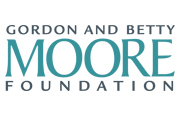
Media partners
EMBO Journal, an EMBO Press journal
International Union of Biochemistry and Molecular Biology
FEBS Open Bio, a FEBS Press journal
Sponsorship opportunities
We offer a variety of event sponsoring possibilities, with the flexibility to select a set sponsorship package or combine individual sponsorship options to suit your event budget. Discounts are available for companies sponsoring multiple events at EMBL Heidelberg. View other conferences, or contact sponsorship@embl.de for further information.
If you are interested in becoming a media partner of this event, please visit our media partnerships webpage.
EMBL wishes to warn sponsors of EMBL conferences and courses of fraudulent schemes purporting to offer sponsorship opportunities on behalf of EMBL or affiliated with EMBL officials. One current scam campaign of which we are aware is conducted using the name ‘Judy Eastman’ (judy@gopcontact.a2hosted.com) and entails approaches to sponsors offering sponsorship opportunities on EMBL’s behalf. Please be kindly advised that all relevant communication regarding sponsorship of EMBL conferences, symposia and courses is handled by EMBL directly and is sent from an official EMBL account. EMBL does not work with any external providers on sponsorship acquisition.
Please also note that:
Suspicious communications purportedly from, for or on behalf of EMBL should be reported to EMBL at the following email address sponsorship@embl.de.
EMBO | EMBL Symposia promote scientific communication and collaboration in the European research area. They provide scientists with a platform to discuss and exchange ideas on forward-looking topics and new developments in the life sciences.
Topics emphasise upcoming developments and the interdisciplinary nature of related fields. Jointly funded and organised by EMBO and EMBL – and complementary to their respective courses, workshops, and conference programmes – the symposia promote scientific communication and collaboration.
All symposia are held in the EMBL Advanced Training Centre (ATC) in Heidelberg, Germany, or virtually.
Want to let others know you’re attending this event? Take a look at our shareable media and feel free to use them in your social media channels or presentations.
Date: 8 - 11 Mar 2023
Location: EMBL Heidelberg and Virtual
Venue: EMBL Advanced Training Centre
Deadline(s):
Abstract submission: Closed
Registration (On-site): Closed
Registration (Virtual): Closed
Organisers:
Contact: Lina Nikolajeva